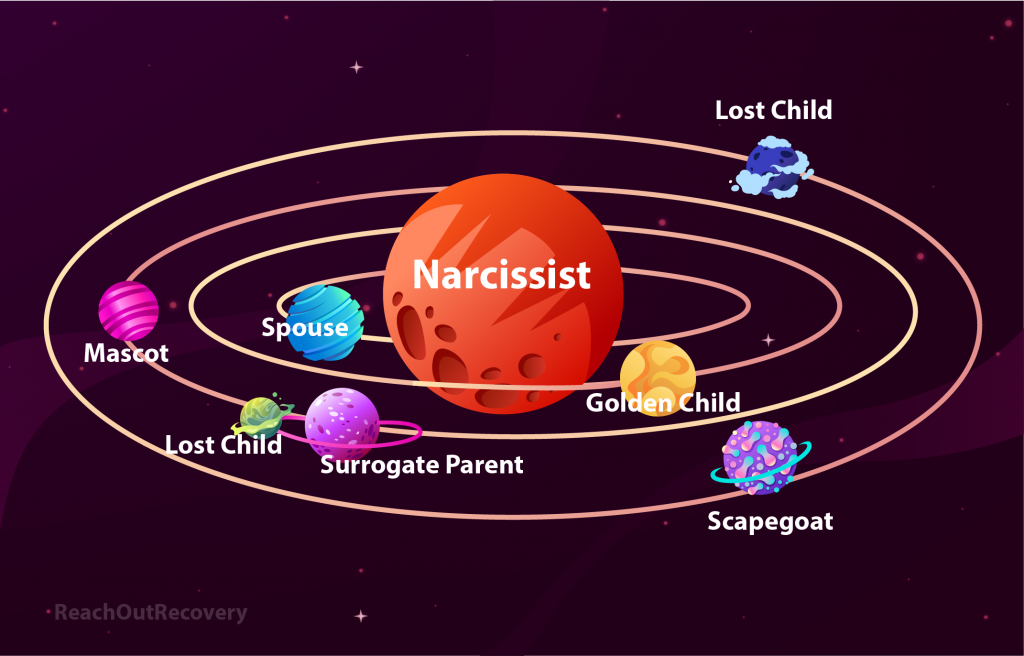The damage of a narcissistic family is painful, lasting, and difficult to overcome. Here’s why. In a narcissistic family image is the most important thing. It’s all about making the parents and grandparents look good and feel good. To be beautiful, successful, and seen as wonderful people are all that matters. If you are in such a family, you function as a prop in a play. Children are taught to suppress their emotions and never speak the truth.
Damage of a narcissistic family is inability to express your feelings
In narcissistic families, reality is denied and so are the members’ real feelings. Children try very hard to get approval because they don’t think anyone cares. They don’t think they matter. Growing up in a home where no one asks how you are inside or listens to what you have to say can lead teens to experiment with substances to cope with their anxiety and/or depression.
Role playing means you can’t be your real self

You might be surprised by the role playing in narcissistic families. Each member of the family is given has a role to play from a very young age. There is the good child and the bad child, the scapegoat and the clown. Everyone strives for attention and approval from the narcissist. Getting love is viewed as a competition. Family members learn that love can only be attained if they fit into a certain role and play their parts perfectly. Read more about the different roles here.
The damage done by a narcissistic family impacts each member’s mental and emotional health in lasting ways. Because they grew up in a toxic household, adults can have difficulty achieving healthy relationships. They don’t know what a loving family is like, which leads to failed or toxic relationships. What are some other consequences of growing up in a narcissistic family?
Anxiety and depression are two kinds of damage of a narcissistic family
In a toxic family, the children are always guessing – what’s next? Because they don’t understand the narcissistic parent’s agenda, they’re often on an emotional roller coaster.
The random acts of this feared presence is what causes their anxiety. Their constant quest for acceptance and not knowing when/if they’ll get it triggers anxiety as well. Without approval and constantly worrying about how or when they’ll attain this acceptance can send them into depression.
Emotional suppression
Narcissistic people have their own lives to worry about – it’s all about them. Their feelings come first in the world they’ve created and all of the family members have to adhere to this to keep that “happy” family image. This means that there will be a lot of emotional suppression among the rest of the family.
The children realize early-on that their parents are too self-absorbed to understand their emotions. They understand that their feelings come in second – if that. After being raised by their “surrogate parent” sibling, who also must steel themselves emotionally, they see that emotions don’t matter in the family. So, they swallow them. It’s painful and keeps the child from thriving and learning to love and trust others.
Low self-esteem
Growing up in a narcissistic family means there’s never an opportunity to finally understand the agenda. Children in the family often suffer from these narcissistic family consequences and develop low self-esteem. Because they’re never on the same page as the narcissist for long, they feel that they’re “stupid” or “not good enough” to understand what’s going on. The lost child is neglected and feels worthless and the scapegoat is full of shame and exhausted.
Negative beliefs about relationships are consequences of a narcissistic family
These roles all pigeonhole the family members into a particular part when growing up. The children become stuck in that mindset – that need for a role. They are groomed to believe that relationships and love are all about how well you play that role. It becomes a competition.
Lack of trust
When children in a narcissistic family don’t grow up with love as a sign of nurturing and support, intimacy becomes difficult to understand. Children want to open their hearts. In this case, the narcissist ignores their children’s needs. The children feel unaccepted and eventually develop trust issues that affect their daily lives. Love becomes frustrating and they throw up walls as a form of protection. This creates many complications in future relationships as they mature.
Narcissism can be taught
Narcissism can develop during childhood due to toxic household environments. The “golden child” has a great chance of developing narcissistic tendencies because they’re trained and groomed by the parent to mirror their behaviors. Read more about the different examples of how narcissism can develop here.





















